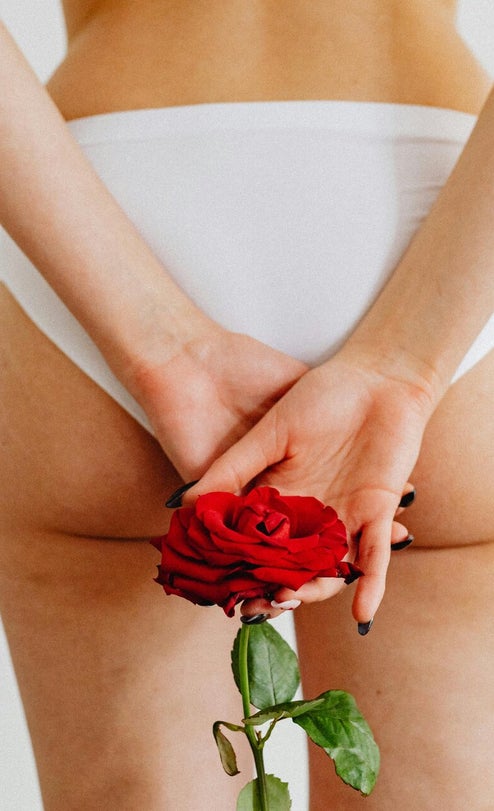
For some people it can take a lot of time and effort to get HRT and you might think all your problems are over once you finally have that lovely packet/bottle/box in your hand...But hang on, what happens when what you thought would be plain sailing turns into an unpredictable, unpleasant and confusing mess and you start to feel worse - not better?! This was never part of the plan. What is going on?
Let's take a look at how being on HRT might not always feel like a walk in the park initially.
Surprise Bleeding?
If you're perimenopausal and start using Hormone Replacement Therapy (HRT), it’s common to experience some unscheduled bleeding during the initial stages of the treatment. This is normal, as it can take time for HRT to regulate your menstrual cycle, and you might notice more than one bleed within a cycle at first. Typically, after about three months, you should experience a more predictable monthly bleed. However, if you continue to have unpredictable bleeding after six months of HRT, we recommend consulting your GP. It's important to rule out any potential issues, such as thickening of the endometrial lining due to oestrogen use or insufficient progesterone coverage for example. If the womb lining becomes overly thickened, it can lead to heavy, unscheduled, or erratic bleeding. If this is left unchecked and undetected this could lead to cellular changes within the womb lining which can progress to malignancy - so don't delay if your still seeing unpredictable bleeds after 6 months of HRT.
You might even have an underlying condition, such as endometriosis, ovarian cysts, or uterine polyps, which could have developed while using HRT or been dormant until you started using HRT.
If you haven't had a period for over a year and you start using HRT, you should be using it in it's continuous form - so oestrogen and progesterone is used daily - and using it like this will way should not lead to you seeing a return of any bleeding. If however, you do develop bleeding after being bleed-free for over a year, again please do let your GP know.
Your safety while using HRT is as important as the symptomatic relief you get from using HRT.


Moods still see-sawing?
Fluctuating, declining and erratic hormone levels during the perimenopause are no fun! And we mean NO FUN. One day you feel normal and "you" are completely on point, laughing away, loving life and "on it". The next, you're teary, doubting your ability to do just about anything and picking yourself apart for every fault you can find. Don't worry - if you can't find them - your inner critic will soon make something up for you! No one needs to live like that day to day. But thankfully HRT can help to level out those crazy hormone levels and keep them on a more even keel, allowing you to function better and more consistently.
However, some people don't always get that quick fix when they start using HRT. How to use your HRT can easily get lost in translation when you're being told a million and one things in your consultation, so don't worry if you have to ask for the instructions to be repeated again - it's important that you know exactly how to use your HRT so that you don't risk missing doses and seeing your symptoms returning just when you thought they were getting better.
It's worth remembering that if you've had one or more periods in the 12 months before starting HRT, you should ideally be using HRT in a sequential regimen - so using oestrogen every day, but only requiring progesterone for 1/2 the month ( unless you have a hormone coil like Mirena which delivers progesterone daily )
It's also worth mentioning that it can take a while to become established on a dose which suits your needs and tackles your mood symptoms - without the dose being too low or too high. During that time, your natural hormones can also continue to decline and fluctuate, so you might initially feel worse before things get better.
Regular follow up's with your prescriber can help to ensure you're using what you need correctly and giving any dose change enough time to take effect.
If you feel your mood is worsening despite feeling better overall from the HRT, please speak to your GP. It's not unusual for some people to require HRT alongside an antidepressant if they've really struggled with depression/anxiety previously. There is nothing in the rule book to say you can't use both - and it might not be forever that you need the antidepressant. Please check out our Resources page where we list further help and support services.
Libido still in your boots?
Tackling your low libido symptom is no quick fix. Libido is a complex being and it's influenced by a multitude of factors like our upbringing, our health, body image, past sexual experiences, trauma, our relationship and expectations - just to name a few. Replacing our dwindling or erratic hormones with more consistent levels thanks to HRT is a great first step, but don't panic if you feel it's helping with everything except matters between the sheets.
Intimacy doesn't have to mean penetrative sex and lots of it. It can help to take the pressure of by talking about your feelings or fears with your partner - clear the space between you, lay those cards on the table and talk through what you're both hoping for or would like to see happening in that side of your lives together. It might also help to do some "self -practice" on your own - to remind yourself how it feels to relax again and to feel sensual and sexual again - especially if it's been a while since you felt like that.
Dr Karen Gurney has written a fantastic book "Mind The Gap" which discusses the complexities of female desire. She combines science with case studies and practical solutions to help us understand the sometimes hushed subject of female sensuality and arousal. Check it out!
We should also mention how testosterone used alongside your HRT MIGHT help some people - but not all. Testosterone is a sex hormone just as much as oestrogen and progesterone, and it declines just as those other hormones decline during the menopause.
If you're interested in whether testosterone could help you with your libido now that you're using HRT - get in touch, we can help.


HRT is only one part of the jigsaw..
If it feels great to finally have the treatment you wanted, but also frustrating that it's not doing everything you thought it would.....give it some time. Your body needs time to adapt to the new levels of hormones that it's receiving and then to respond and start working on your symptoms. It wont happen overnight, and it might help if you look at a combination of HRT and some adjustments to your diet, lifestyle and activity.
Now is a great time to look at how a combination of changes and tapping into resources that can help you ALONGSIDE your treatment can help you feel better and benefit your health and wellbeing overall.
Add comment
Comments